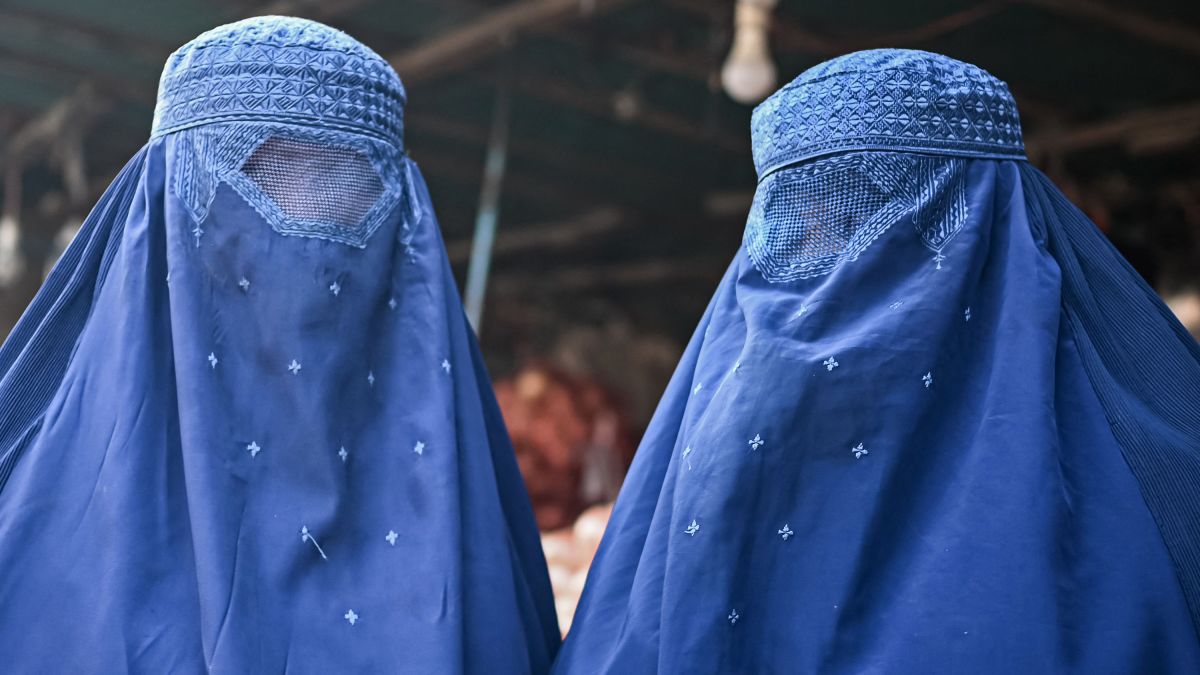Already a subscriber? Make sure to log into your account before viewing this content. You can access your account by hitting the “login” button on the top right corner. Still unable to see the content after signing in? Make sure your card on file is up-to-date.
The International Criminal Court has officially issued arrest warrants for two senior Taliban members over their roles in promoting the persecution of women and girls under Taliban rule in Afghanistan.
Some shit you should know before you read: Shortly after the Afghan government fell back in August 2021, the Taliban rapidly imposed a series of restrictions that systematically erased women and girls from public life. Girls were banned from attending school beyond the sixth grade, and women were prohibited from working in most government and NGO roles. They were barred from traveling long distances without a male guardian, forbidden from accessing public parks, gyms, and beauty salons, and required to cover themselves completely when outside the home. The Ministry of Women’s Affairs was also dissolved and replaced with the Ministry for the Propagation of Virtue and the Prevention of Vice, which enforces these rules. A 2022 directive also banned women from speaking or singing in public and called for their voices and appearances to be concealed in all social settings.

What’s going on now: In a notable development, the ICC issued arrest warrants for Haibatullah Akhundzada, the Taliban’s Supreme Leader, and Abdul Hakim Haqqani, the group’s Chief Justice, citing crimes against humanity. Akhundzada, who leads the Taliban’s ideological and political strategy, and Haqqani, the architect of the group’s legal framework rooted in hardline interpretations of Sharia, are accused of orchestrating and enforcing a systematic campaign to deprive Afghan women and girls of their fundamental rights and freedoms since the Taliban’s return to power.
The ICC’s pre-trial judges found “reasonable grounds to believe” that the two leaders committed crimes involving persecution on gender grounds and against individuals who did not conform to the Taliban’s policies on gender identity or expression. According to the court, “girls and women have been severely deprived of their rights to education, work, freedom of movement, and participation in public life,” and that the Taliban has created an environment of fear, repression, and violence against those who resist or even quietly dissent.
In supporting documentation, the ICC referenced actions such as bans on female education past sixth grade, closures of women-run businesses, the criminalization of women traveling without a male guardian, and the silencing of women’s voices in public. These measures, the court said, were not merely repressive social policies but part of a deliberate and systematic attempt to erase women from Afghan public life—qualifying under international law as crimes against humanity. The court also pointed to additional abuses, including arbitrary detention, torture, and rape of women in Taliban custody, as further evidence of state-led gender persecution.
The Taliban rejected the ICC’s move, condemning the warrants as politically motivated and illegitimate. “We neither recognize anything by the name of an international court nor do we consider ourselves bound by it,” said Taliban spokesperson Zabihullah Mujahid in a statement on social media. He added, “Labeling the laws of Islamic sharia as oppressive or against humanity … is a clear expression of enmity and hatred toward the pure religion of Islam and its legal system.”







